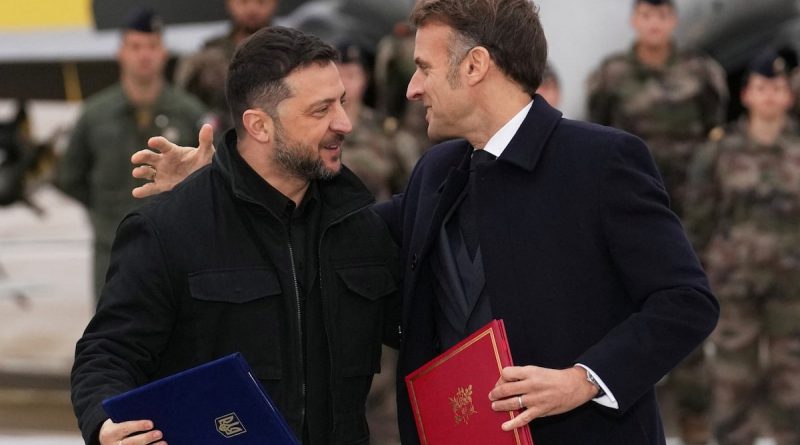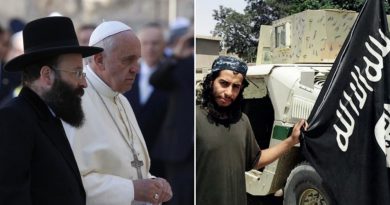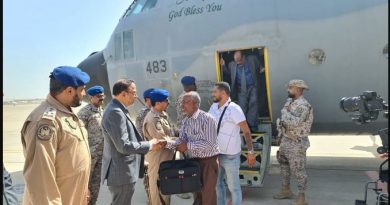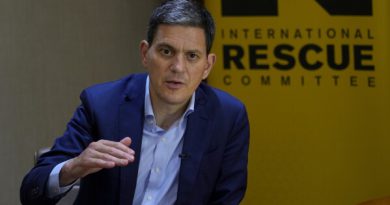Ukraine Signs Agreement to Acquire 100 Rafale Jets from France
Paris – Ukraine announced a major step to strengthen its long-term defense capabilities, confirming that it has signed an agreement with France to obtain 100 Rafale fighter jets as part of its broader plan to expand its air power amid ongoing conflict.
The announcement came during President Volodymyr Zelenskiy’s visit to Paris, where he met French President Emmanuel Macron for high-level talks focused on military support, air defense needs, and long-term cooperation.
The agreement marks one of the largest aviation commitments Ukraine has made since the start of the war, as the country faces intensified missile and drone attacks and seeks to secure advanced technologies for the future.
Zelenskiy said the new aviation partnership reflects Ukraine’s focus on building a modern, well-equipped air force capable of countering threats and ensuring national security over the coming decade.
French officials confirmed the number of aircraft and stated that the deal is part of a broader strategic aviation plan, though details on financing and delivery timelines remain under discussion.
A signing ceremony took place at Villacoublay military airport, where both leaders endorsed a letter of intent covering French defense equipment, symbolically set against the backdrop of a Rafale fighter jet.
The agreement is expected to include both immediate transfers from French stocks and longer-term procurement plans that align with Ukraine’s goal of expanding its fleet to around 250 warplanes.
Ukrainian plans also involve integrating other aircraft types such as the U.S. F-16 and Sweden’s Gripen, which will form a diverse and modernized combat aviation structure.
Training requirements for Rafale pilots remain extensive, meaning full operational deployment could take time, though Kyiv views the investment as essential for long-term stability.
Over recent weeks, discussions between both governments intensified as Ukraine sought additional air-defense support, and France evaluated potential contributions amid domestic political and budgetary pressures.
France previously committed Mirage jets and Aster 30 surface-to-air missiles, and further expansions of missile supplies and SAMP/T air-defense systems are expected to emerge from ongoing negotiations.
Defense industry representatives are also participating in the visit, offering briefings to Zelenskiy on next-generation aviation, missile systems, and anti-drone technologies that could support Ukraine’s evolving battlefield needs.
A joint forum in Paris is bringing together Ukrainian and French drone manufacturers to explore cooperation, innovation, and possible production partnerships in areas where demand continues to rise.
France and the United Kingdom have also been promoting the establishment of a coalition of partner nations prepared to contribute troop deployments and defense assets along Ukraine’s western borders once a peace agreement is reached.
The goal of such a coalition is to ensure Ukraine has the long-term military resilience and economic support necessary to deter future threats and maintain stability after the conflict.
Ukrainian officials say the Rafale agreement sends a strong strategic signal that European partnerships are deepening, even as uncertainties continue around global defense funding and international support.
French leaders emphasized that the intention behind the agreement is to provide Ukraine with high-quality systems designed to counter ongoing aggression and support its path toward greater security autonomy.
Although questions remain about financing mechanisms, both governments appear committed to structuring long-term procurement models that align with Ukraine’s defense priorities and France’s industrial capabilities.
Zelenskiy noted that the strengthening of air defense and aviation is essential for protecting civilians, energy infrastructure, and critical supply routes that remain under frequent attack.
The Rafale jets are expected to contribute significantly to air-to-air and air-to-ground capacities, giving Ukraine more flexibility in responding to shifting battlefield conditions.
As talks continue in Paris, both sides have indicated that further defense cooperation announcements may follow, particularly in missile defense, advanced radar, and long-range strike capabilities.
The new agreement is viewed as a cornerstone of Ukraine’s future security architecture and a sign of deepening European support at a pivotal moment in the conflict.



